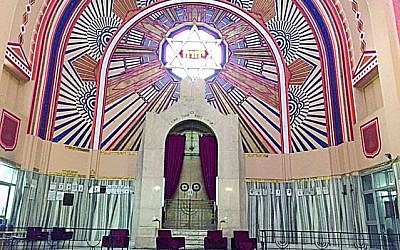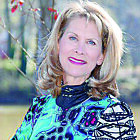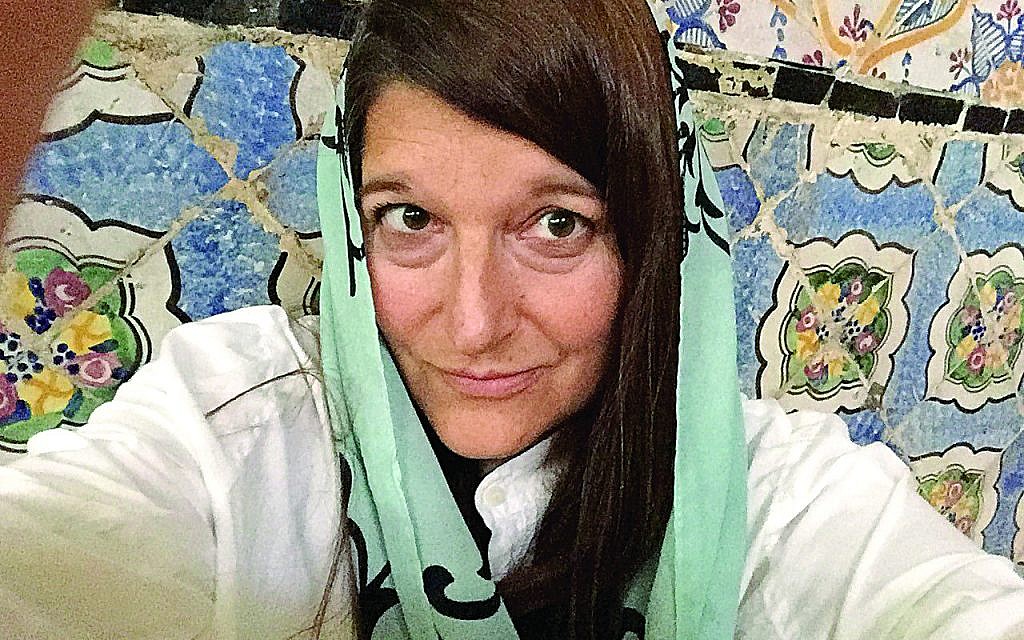Jewish Muslim Scholar Unveils
Emory professor, an expert on the Muslim Brotherhood, is writing a new book on humanist values in historical settings.
Carrie Rosefsky Wickham is a professor in the Emory University Department of Middle Eastern and South Asian Studies. She received her bachelor’s from Harvard University and her doctorate from Princeton University. Her published scholarship focuses on the dynamics of social movements and contentious politics in authoritarian settings, with a regional focus on the Middle East and North Africa.
Wickham is the author of “Mobilizing Islam: Religion, Activism and Political Change in Egypt” and “The Muslim Brotherhood: Evolution of an Islamist Movement” released with a new afterword to explain why Egypt’s post-uprising democracy collapsed.
She is reputed to be one of the world’s experts on the Muslim Brotherhood, having met with two-thirds of the members of their executive council, more than any other Western researcher.
Get The AJT Newsletter by email and never miss our top stories Free Sign Up
Wickham has presented her research to members of the U.S. State Department, the National Intelligence Council, and the National Security Council.
In a new book project, she is exploring how humanist values and sensibilities gain social traction in different historical and geographic settings. This will include how Arab leaders are working to revive humanist elements of the Arab-Islamic turath (civilizational heritage) through initiatives in liberal arts education, religion and public culture. The book will also include research on the Palestinian Authority, Tunisia, Morocco and the United Arab Emirates.

Wickham would have liked to include Egypt, but she fears that her long association with the Brotherhood, now designated a terrorist organization by the Egyptian government, could put her and anyone she interviewed at risk.
Word is that Wickham’s classes at Emory are among the most highly coveted. In addition to her clear exposition of complex world events, students appreciate her lively anecdotes from the field.
Jaffe: As a child, what set you on this path?
Wickham: I am the oldest of four children. My grandfather, whose occupation was selling burlap bags, was truly a philosopher. He would ask me “big questions:” What is a star? Why are we here? I used to spin a globe and select a country to learn about. I was “bookish.”
I studied Portuguese, Spanish, French, Hebrew and Arabic. At 15, my family and I visited a Palestinian village in the Galilee and I saw the possibility of Jewish-Muslim relationships based on harmony and mutual respect. That was a turning point.
Jaffe: You started teaching at Emory in 1994. How did that evolve?
Wickham: I was finishing my dissertation when I joined the faculty, plus teaching new material in every class, so I didn’t get much sleep! Over time, my focus has become more interdisciplinary, exploring the interconnections between politics, culture, philosophy, history, ethics, sex, and gender. My primary expertise is contemporary politics and society in the Middle East and North Africa. I love teaching and try to convey to students how exciting the life of the mind can be.
Jaffe: How did you navigate in Muslim countries as a Jewish female and get potentially hostile leaders to talk?
Wickham: I dressed very modestly. I wore a head scarf while talking with leaders in the Brotherhood, at their request.
When asked, I said that I am of Romanian ancestry (true). When asked directly about religion, I stated that I believe in G-d, and if pressed, would say I was Jewish. But this was hard to admit. One Islamist leader in Jordan described Jews as the “descendants of snakes and the source of all evil.” Others wondered, “Why does the U.S. allow Jews to dominate the country?” I was often asked if I was in the CIA or Mossad, and when I said “no,” how could I prove it. Despite these challenges, I managed to establish a rapport. I told them I wanted to understand how they viewed the world. To illustrate, I repeated what they told me in my own words. This was also a way to confirm I had it right, since nearly all of the interviews were in Arabic. I interviewed Mohamed Morsi, later president of Egypt, by phone. He and many of the others I got to know are now in prison.
In 1990 I met with Kamal Habib, a leader in the terrorist group responsible for assassinating Anwar Sadat. He was allowed out of jail every two months to meet with his academic advisor, who was also my advisor! Later he renounced violence.
Jaffe: You are applying for another Fulbright grant to study what?
Wickham: I question how the rich culture of learning and reflection that was once a key feature of Arab-Islamic civilization might be revived. Recent initiatives in higher education, religion and public culture could function as seeds of broader social change. Through a program, Knowledge Without Borders, Moroccan King Mohammed VI is encouraging reading in Sharjan by supplying 50 books to every family. His daughter is in charge of the initiative, which is significant in itself.
The king also has a new school training males and females to be preachers. This is but one of many initiatives in Morocco and Tunisia promoting religious inclusion and pluralism. This is a powerful Islamic counter-narrative to ISIS. Leon Botstein, Jewish conductor and president of Bard College, teamed up with Palestinian educators to establish a liberal arts college at al Quds University in Jerusalem. In my book, I describe these initiatives as “hidden treasures” because they operate below the radar of the daily news cycle.
Jaffe: Who are your heroes? What gives you such hope?
Wickham: Mohammed Dajani, a Palestinian professor, taught a course on the Holocaust and took a group of Palestinian students to Auschwitz. He received death threats and had to resign, yet he had no regrets.
I visited a Tunisian Sufi scholar’s home and we sat with his family under the fig trees in his garden. The Bible (Micah 4:4) predicts a time when “everyone will sit under their own vine and fig tree, and no one will make them afraid.” I felt we were living that vision of fellowship and peace. In the Quran (49:13), it says, “God created us different so that we might know one another.” This goes deeper than mere tolerance to recognizing the humanity of the stranger, which is a part of the Jewish tradition too. We see this at Hadassah hospital where Jewish doctors treat Palestinians. Acts of human kindness, which challenge the narrative of conflict, give me hope.
Jaffe: So, the bottom line is?
Wickham: The finest part of every religious tradition is that which recognizes the humanity of the ”other.” It can be found in Judaism, Christianity and Islam, but unfortunately it is not always heard. In kabbalah, the Jewish mystical path, it is through acts of love that we can repair the world. We human beings are the instruments of change.
On a lighter note: Wickham’s mother is Flora Rosefsky, a talented Judaic artist who has designed several covers for the Atlanta Jewish Times.
After my interview at Wickham’s home, she sat at her piano and played a classical melody while her beagle, Buddy, howled like an opera star. I joined in too. It was surreal. Far from the shrines of Rabat, but still hauntingly beautiful. ■





comments